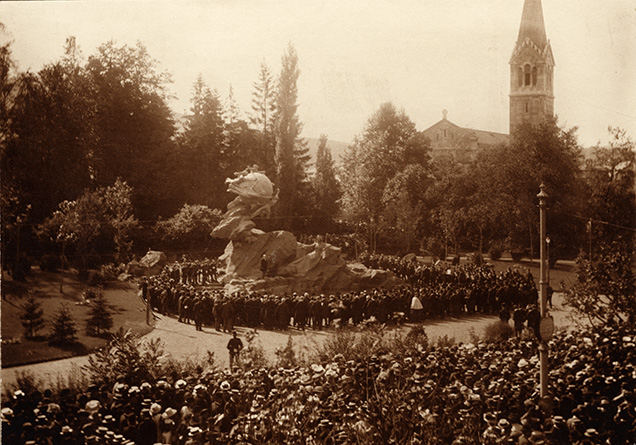As the Universal Postal Union celebrates 150 years, one historian emphasized that the organization’s long history is not a foregone conclusion. In the face of challenges – which have been numerous in one and a half centuries – it has evolved, perhaps pointing a way forward.
“The UPU has never been outside history,” said Léonard Laborie of the National Centre for Scientific Research (CNRS), UMR SIRICE in Paris. “And history is made of negotiations, tensions, contest, conflict. Even when we look at cooperation, we have to consider how it was a way to mitigate conflicts, to overcome conflict. Conflict is still and always there.”Laborie shared a glimpse of the UPU’s historic role in finding consensus among a vast diversity of countries with Ian Kerr, host of the UPU podcast, Voice Mail, in advance of February’s Historians’ Colloquium: “Achieving ‘A Single Postal Territory’: A Global Promise – Past and Present.” The event, developed with La Poste Groupe, La Poste Historical Committee (CHP) and SIRICE laboratory, will bring together 40 historians, academics and philatelists from more than 16 countries to explore the organization’s role in becoming a key component of international communication, business and development.
To get there, Laborie went back to the 1850s with calls to abolish transit fees, for setting a common universal rate, saying it took some two decades to achieve the founding convention that established the Universal Postal Union and eventually the first forays into multilateralism.
“With the Universal Postal Union and, a few years before, the International Telegraph Union, we have the origin of global governance, of globalization itself,” he said.
It made international communications easier, cheaper, and safer to send or receive a letter across borders. Mail flows increased and diversified, with merchandise samples, newspapers, postcards, parcel posts, and money orders. Interestingly, some types of post disappeared, such as the “phono-post” in which a customer could send a gramophone recording, allowing a recipient to listen to, instead of read, a message.
Another milestone was the UPU’s inclusion in the United Nations. As a measure to safeguard international postal cooperation from the influence of international politics, the UPU’s host – Switzerland – and member postal administrations resisted pressure to join the League of Nations, the UN’s predecessor, after World War One, Laborie said. However, after World War Two, the UPU could no longer resist and joined as a specialized agency in 1948.
Wartime highlighted both the importance and challenges of keeping the UPU outside the political fray. During both world wars, the UPU played a key role in enabling free postage to and from prisoners of war, he said. But despite calls for free access to postal transit through belligerent countries, this never occurred.
“It was something asked for, argued for, but it never took shape,” he said, “so the post is not neutral when there is a war.”
Laborie also commented on the UPU’s ability to reach its expressed goals. Article One of the treaty, which later became a convention, says members intended to form a single postal territory that would oblige them to process international mail, including transit mail. This was achieved, Laborie said, with caveats.
“For instance, the uniform rate for sending a letter abroad, whatever its destination, whatever the place where you send it from, was replaced after World War One by a more flexible scheme with one common rate in principle but the possibility to deviate from it,” he explained.
Additionally, the UPU intended to abolish international accounting between administrations, yet transit fees were never abolished.
These and many other areas will be explored during the Colloquium, he said, such as the politics of postal cooperation, the UPU’s contribution to and contesting of colonialism, and how a coordinated fight against fraud led to philately and global stamp collections.
“I hope that the Colloquium will critically assess if and how the UPU and its members empowered communities across countries,” Laborie said. “I hope this meeting will bring to light what this impressive figure – 150 years – could obscure: the fragilities. The UPU has a long story but is filled with contingencies, evolutions, a negotiated nature of postal cooperation.”
While commenting that a historian may not be the best person to offer predictions on the UPU’s future, he did share this: with the decline of the letter, together with the rise of Artificial Intelligence, the future of the UPU will be about accommodating disruption.
“I believe that postal operators can better face these challenges together than separated,” Laborie said, adding that he believes the UPU will be, in 2074, celebrating its 200th anniversary.
Listen to the full episode of Voice Mail here: https://www.upu.int/en/News-Media/Podcast
Learn more about the UPU Historians’ Colloquium here: https://www.upu.int/en/events/historians-colloquium-celebrating-upus-150th-anniversary You can follow the Colloquium online on UPU TV on 1 & 2 February 2024.
